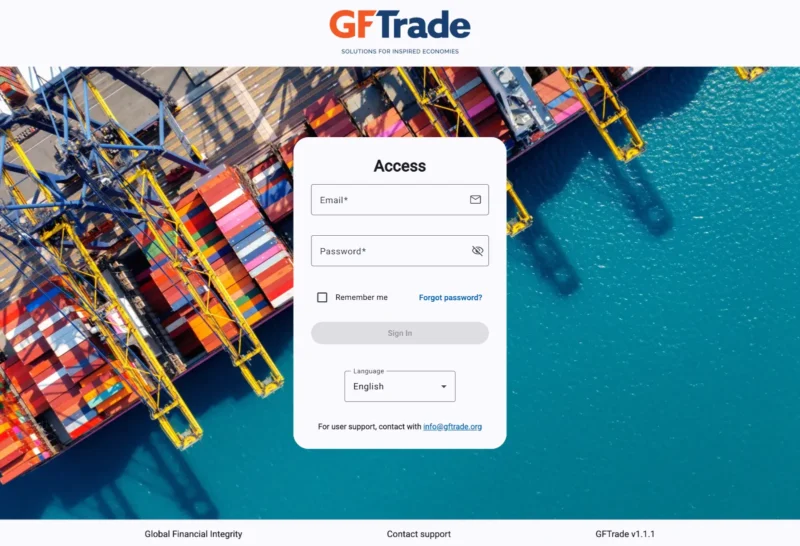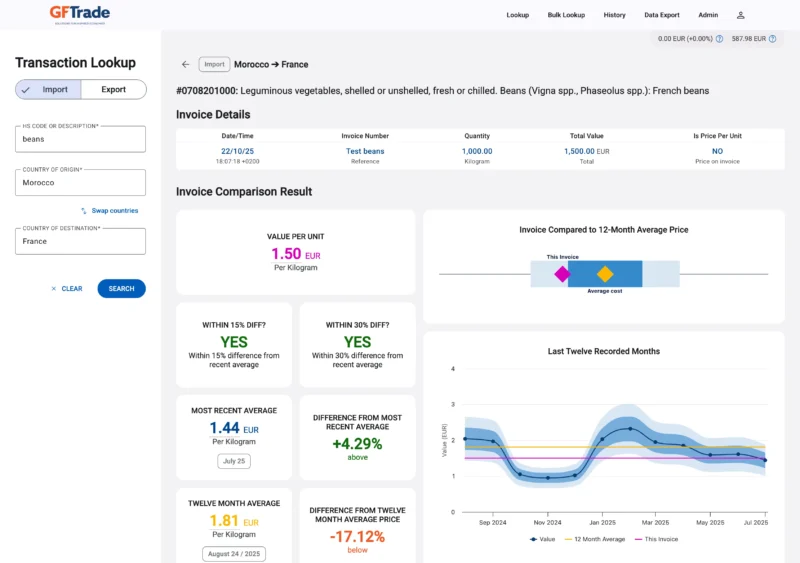
We started working for Global Financial Integrity
Global Financial Integrity (GFI) is a Washington, D.C.–based think tank focused on transparency and the fight against kleptocracy, illicit financial flows, transnational corruption, illegal trade, and money laundering. It pursues these goals through high-caliber research and data analyses, the use of advanced tools, and the application of the latest available technology. That’s where we came in to help.
GFI is a nonprofit organization that strives to make the world a better place, and we were introduced to them by our friends and office neighbors at Populate Tools, with whom they had been working up until then.
The initial assignment they proposed was to update and improve the frontend of one of their applications, GFTrade, a tool designed for global trade transaction risk assessment aimed at customs officials and international trade financial institutions. The web application was to be developed in Angular (migrated from Angular.js to Angular 20), making it a perfect project for us.

If all went well (spoiler: it did), we would also take charge of the maintenance and monthly processing of trade data sources that feed the application’s database, as well as its ongoing development, future improvements, and the management of all infrastructure running on Amazon AWS.
In addition to the agreed-upon update for the web application, we implemented the following improvements:
- Development of a PWA with a redesigned UI/UX based on Angular 20+.
- Persistent URL navigation (which didn’t exist previously).
- Accessibility and multi-device usability improvements.
- Contextual hints, tooltips, and guidance throughout the application.
- New filtering and predictive text options for searches.
- Bug fixes and error corrections.
- Many other visual and UX enhancements.

It has been a months-long project that we are very proud of, one that marks the beginning of a new collaboration with a company whose mission we share: promoting a safer and more equitable world. That shared purpose makes the work all the more rewarding.
Among the challenges ahead are automating recurring tasks, optimizing resource management to improve costs, and designing new modules and functionalities that will help the application evolve and deliver more value to its users.
Some ideas we have in mind include the incorporation of a high-risk HS code watchlist, real-time support and assistance for agents in decision-making, or the generation of AI-based invoice risk assessment reports.